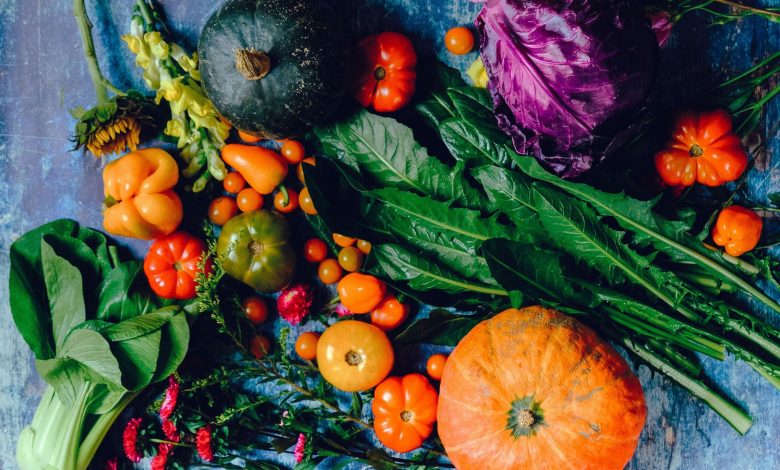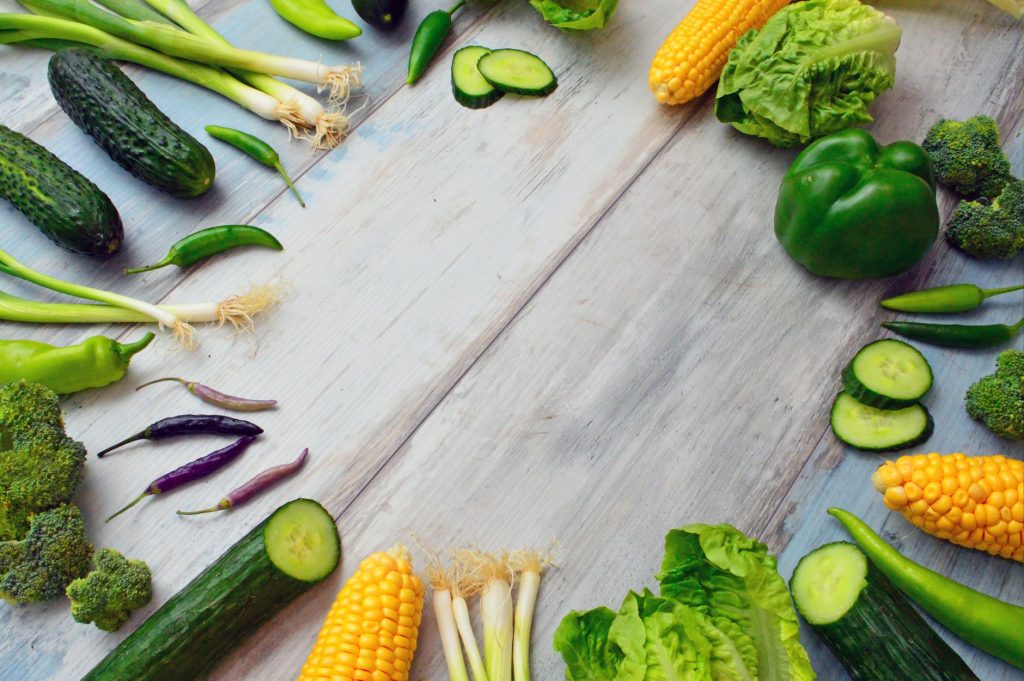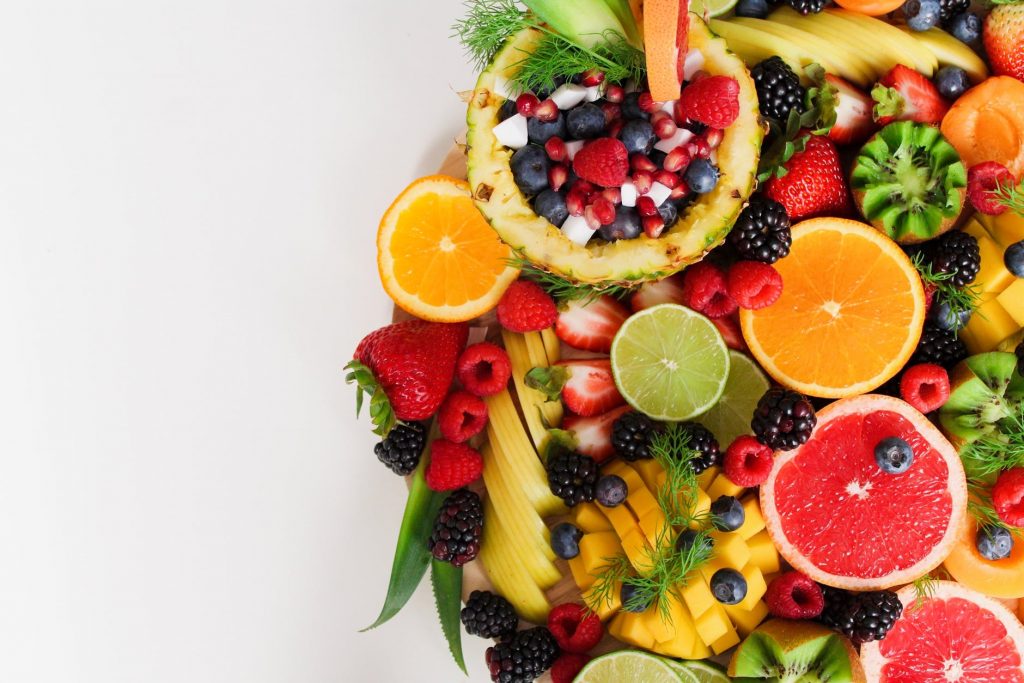
What Exactly Is Organic Food & Does It Really Help Lose Weight?
As the Go-Organic wave sweeps the world, it is quite natural for discerning consumers to ask what’s special about these foods and why they should opt for them. If you are keen to maintain good health and you believe in eating healthy, you may be asking these very same questions after hearing both good things and bad about organic food. Many people who are trying hard to lose weight ask these questions too after hearing about how organic food can help trim those crucial few inches around the waistline. Does it make sense for you to switch to organic or is it just a fad that has no real health benefits to offer?
World over, organic food is becoming more and more popular, and year after year, the number of people switching to organic, at least partially, is increasing. In a survey that involved 3000 people in three major consumer markets, USA, UK and Australia, an impressive 33% of the participants from the USA said that they chose to go organic for good health. 8% of the respondents chose to do so for a greener earth, while 9% said that organic food tasted better. Interestingly, in the UK and Australian markets, a pretty similar picture emerged with 27% of the UK respondents and 18% of Australian respondents also believing that organic food offered significant health benefits.
There does seem to be quite a widespread notion that these foods are healthier, and there are studies that back up these beliefs as well. But before we get into what exactly makes them better for our bodies, let’s understand what exactly IS organic food.

What’s Organic and What’s Not…
The U.S. Department of Agriculture has set out the norms that determine if a food stuff can be categorized as organic or not. Since the year 2002 when these norms were laid out, foods have to be grown in strict accordance with these rules to be deemed organic. In brief, the rules say that organic foods, that is, the edibles, must be grown without any use of conventional pesticides, sewage- sludge- based fertilizers or synthetic fertilizers, radiation or bioengineering. When it comes to animals, they must be raised on purely organic feed, and no growth hormones must be given to them. Use of antibiotics for these animals is prohibited as well. These animals should be allowed to graze in open pasture land, which may not be the case on a farm that does not claim to produce organic meat.
When you see a food product that has the USDA Organic label, it means that it comes from a farm that has been inspected by an expert to verify if the USDA rules have been complied with. This product has at least 95% organic ingredients. On a side note, if you want to be sure that what you are buying IS organic, then make sure you look for this label.
Interestingly, the guidelines also include restrictions on the use of manure, in the sense that strict guidelines apply on composting and use of raw manure. This helps curb the possibility of contamination of the food by microbes.
So Does This Mean Organic is Safer?
With respect to your health and with respect to the environment, organic is safer. The most evident cause of health benefit from organic is that these foods come with far less pesticide/fertilizer residues than your conventional food. You definitely what to cut down on the amount of these toxic substances that you are ingesting involuntarily alongside your daily food intake, and organic foods help you achieve just that. A secondary benefit of the restriction in use of pesticide/ fertilizer on organic farms is that the crops tend to boost their own defense systems to ward off the bugs that attack them. This means they have more phytochemicals than non-organic plants. Phytochemicals are good news for us because they encompass several essential vitamins and antioxidants that work in our favor, enhancing our health.
An article in the Diet/ Nutrition section of TIME magazine had some interesting studies to quote about this:
- A 2014 British Journal of Nutrition analysis showed that organic crops have a near 50% LESS chance to test positive for the heavy metal Cadmium that tends to accumulate in the kidney and liver over the years, leading to drastic health impacts.
- A 2016 study in the same journal showed organic foods have more omega 3 fatty acids that are essential for good health.
- According to experts from the Arizona State University’s Biodesign Center for Environmental Security, the no- antibiotics rule in force for organic foods ensures that those who opt for these foods are less likely to develop resistance to antibiotics, in general. The expert also says that organic meat presents a much-lowered risk of cancer, which is not true of non- organic foods thanks to the systemic hormones used on the farm animals.
- The Journal of Agricultural and Food Chemistry conducted a six-year long study that showed certain organic crops have significantly higher content of antioxidants that help prevent cancer and also ward off premature aging.
There are quite a few expert views and studies to show that organic is good for our overall health and, of course, for the environment and Earth in general as well. But does switching to organic also have significant weight loss benefits?

Can Going Organic Help with Weight Loss Goals?
There are a mix of simple and complex reasons for why organic foods may actually help you with losing weight.
The better taste: It is a common belief that organic foods tastes better, fresher, and are more textured. When you have your healthy foods, like vegetables, fruits, nuts tasting better, chances are that you will increase your intake of these and cut down, in lieu, your fatty, carbs rich foods. Imagine a plate filled with carbs versus a plate with green, health fruits and veggies. Which one is going to help you control your weight? Certainly not the carbs filled one. Often, weight watchers find it tough to control their carb intake because they cannot eat enough bland tasting veggies and fruits to make up a big enough portion to keep hunger pangs away. If veggies and fruits taste better, this automatically become a far more pleasant task. Add to this the fact that organic foods tend to have a richer, more colorful appearance that makes the food on your plate LOOK more appealing and attractive as well.
The presence of resveratrol: Organic fruits and veggies are a rich source of secondary metabolites. Among these metabolites is resveratrol, which happens to be a fat burning metabolite. Studies show that resveratrol dupes the body into burning up fat. This means that you lose weight faster or more efficiently and also avoid gaining weight if your diet consists of a good portion of organic foods. This metabolite also promotes a feeling of fullness, so once you have your organic-food based diet, you feel satiated quickly and for longer. You don’t feel like snacking in between meals, which is a big cause of weight gain. Also, since you feel satiated more quickly, your overall meal portions reduce without compromising on your health.
More nutrition with less quantity: One thing you do not want to compromise on when you are dieting is nutrition. Weight watchers always worry if their smaller portions are affecting the amount of nutrition they are getting into their bodies. With organic foods, this worry may be unnecessary. According to research published in the British Journal of Nutrition, the concentration of nutrients found in organic crops is much higher than those found in conventionally grown foods. So much smaller portions of, say organic fruits, will give you the same nutrient content as much larger portions of the same conventional grown products. Look at the nutrients per ounce content in organic foods and in comparison with conventionally grown foods, and you will find the numbers rather impressive.
The flavanol content: Another beneficial compound in organic plants is flavanol. This compound curbs appetite and ensures that it is restricted. This means you do not tend to binge on food because you are voraciously hungry. Studies have shown that introduction of flavanol rich foods like grapes, blueberries, apples, pears etc. can help keep obesity away and also help with weight control issues. A detailed four year study published here proved that consumption of foods with several flavonoid subclasses kept weight gain at bay and also promoted weight loss in some cases. Among the flavonoids, anthocyanins seem to have the most beneficial effects with respect to weight loss.
Antioxidant rich food: Studies also show that organic products have plenty more antioxidants than conventional products. When you don’t have enough antioxidants in your body, you have an unhealthy build up of toxins in your systems. Now, toxins don’t just make you age faster, make your skin look tired and haggard, and cause a dip in energy levels; they also mess with your entire body’s systems, including your hormone balance. With hormone balance all awry, your weight can begin to show drastic changes as well. Get enough antioxidants in your body, and your hormones start working as they should, resulting in weight control. You also feel less exhausted and have more energy to stay active, which improves the energy and fat burn in your body.
The Cost Factor
The downside to going organic, for most people, is the cost factor. Yes, organic foods can be costlier, and that makes them a difficult option for many. However, there are some simple ways for you to keep expenses within a reasonable budget, yet get the benefits of organic foods. Here are some ideas you can use:
- Switch to organic for specific foods alone: Ideally, you would be going organic for foods that are believed to have the highest pesticide content. That way you get the most benefit simply by avoiding the most pesticide laden products. So what are these foods with which you should switch to organic variants? Apples, cucumbers, sweet bell peppers/hot peppers, potatoes, celery, peaches, kale, cherry tomatoes, grapes, strawberries and summer squash are treated with loads of pesticides. Opt for organic when you are buying any of these products.
- Go organic with your most commonly used foods: If you use certain foods rarely, then conventional products may not impact your health too much in those areas. But with those foods that you use regularly, you want to go with the pesticide free, healthy option since these foods are part of your meal almost daily. That way, you are not spending extra on organic for the entire range of your food stuffs, and you can manage within a reasonable budget. At the same time, you are keeping your exposure to harmful pesticides to a minimum.
- Frequent farmer’s markets: Typically, the organic products available at farmer’s markers are cheaper than what you get at your local grocery store. Plus, you get them fresh straight from the farm. Check around for the weekly farmer’s market in your locality and make it a habit to go shopping for organic produce right here.
- Buy seasonal foods: You get the produce at its cheapest price when it is the right season for it. Find out the right season for each fruit or veggie that you buy and schedule your purchasing so that you are buying each in the peak of its season. You will also have more sources to buy the same produce from during the right seasons.

Organic Foods that Help with Weight Loss
The first thing you need to remember here is that the mere fact that a food stuff is organic does not make it weight loss friendly. If you are thinking that just by switching to organic products but keeping your current dietary habits and portion sizes unchanged, you will gain that slim, svelte beach-perfect body, well no, that’s not quite going to happen. But what will happen if you choose the RIGHT organic foods is that you will lose weight and also gain health because you are eating food that is not loaded with chemicals and pesticides and other stuff that messes with your body’s delicate system. Also, as you already saw, organic foods do contain certain special compounds that help you burn fat, control your appetite and craving for food and that goes a long way in helping you maintain your weight loss regimen.
So, while it is not true that just by being organic a food stuff will help with weight loss, there ARE certain organic foods that can help you here rather effectively.
Eggs: An awesome source of your body’s building blocks- the all-important proteins, eggs are a great way to start your day and fight off those hunger pangs at the same time. Protein breaks down really slowly in your body, so a protein rich meal is very satiating, and it keeps you feeling full for a much longer time. This result is no snacking urge in between meals. Choose free range eggs that also give your body the goodness of omega 3 fatty acids that can keep your heart ticking strongly for a longer time and also keep mental health issues away for longer.
Yogurt: Especially the unsweetened kind is a great way to give your digestive system a helping hand. Apart from giving you a healthy dose of calcium, yogurt also has proteins and vitamin B12 and riboflavin. For weight watchers, yogurt is good news because it also makes you feel really full after you have just a cupful, and that’s a good thing if you want to avoid eating too much. Fruit and yogurt make a good breakfast combo because you start your day with a healthy diet and you can avoid eating until lunch time.
Berries: Colorful berries, especially strawberries and blueberries, are awesome sources of antioxidants, and that means they keep your body free of toxins that can mess with your hormones and cause weight related issues. Blueberries are deemed the perfect snacking option because they are so rich in fiber and so make for a fulfilling snack. Carry some with you always so that, when you are feeling peckish, you pop a few berries in your mouth instead of reaching for a packet of chips or some other junk food.
Apples: Organic apples do a better job of keeping the doctor away than conventional ones because these have fewer pesticides in them that can accumulate in your body and cause long term issues. Apples ensure that your meal portions are limited because they take the edge off your appetite and prevent you from binging on food.
Nuts: Organically grown nuts are a great snacking option, and they can be a tasty, crunchy addition to salads as well to add texture to the dish. While walnuts, ground nuts, almonds are all good choices, almonds are particularly beneficial for those who fear heart disease since it reduces the risk. Nuts work great in taking the edge off your appetite as well, and they have several essential nutrients to offer you.
To create a well balanced organic food weight loss regimen, add these into your diet chart, and you are sure to see some impressive results, not just in your waistline, but also overall health!



